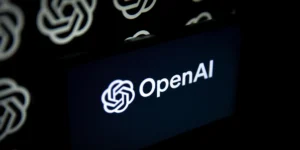OpenAI, a leading research company in artificial intelligence, has undergone a significant governance shift. The organization recently separated its operations from the OpenAI Startup Fund, previously led by OpenAI CEO Sam Altman. This move could have major implications for OpenAI’s future and its commitment to transparency.

The Cause for Concern
The OpenAI Startup Fund, launched in 2021, raised eyebrows due to its unusual structure. While presented as an internal venture arm, Altman managed the fund with funds raised from external investors. This raised concerns about potential conflicts of interest, as Altman would be overseeing investments in AI startups while leading OpenAI, which itself invests in and collaborates with AI companies.
Addressing Transparency
OpenAI has addressed these concerns by transferring control of the Startup Fund to Ian Hathaway, a partner at the fund since its inception. This separation aims to ensure a clear distinction between OpenAI’s research activities and its investment decisions.
Looking Ahead
The move is a positive step towards fostering transparency and mitigating potential conflicts. It allows OpenAI to focus on its core mission of responsible AI development without the cloud of financial entanglement.
This could pave the way for stronger partnerships and collaborations within the AI research community.
Uncertainties Remain
However, some uncertainties remain. The long-term impact on the Startup Fund and its investment strategy is unclear. Additionally, it will be interesting to see how this development affects OpenAI’s approach to supporting and collaborating with early-stage AI ventures.
Overall, OpenAI’s separation from the Startup Fund signifies a potential turning point for the organization. It demonstrates a commitment to transparency and could lead to a more focused and impactful approach to AI research.





